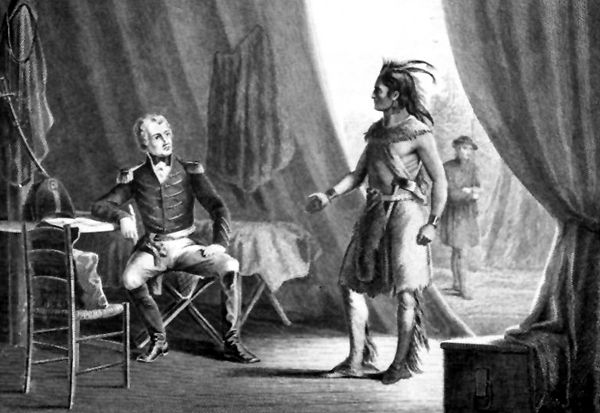The primary focus for the term “tradition” is in reference to the culture war occurring between the Messianic Israelites in America known as “Nephites,” their apostate brethren, and the disenfranchised Lamanites. This seems to be distinct from the “curse” divinely appointed by God to those who abandon the Nephite civilization – it isn’t proclaimed to those secular Nephites who merely did not participate in the true church. Only groups such as the Amlicites in Alma 3, the Zoramites in Alma 31-35, and Amalickiah’s political revolt in Alma’s war chapters merit God’s active condemnation…and yet the extent of their punishment is to be numbered among the Lamanites. It’s Jacob who first asserts this tribal distinction: either you were “friendly to Nephi” and therefore a “Nephite,” or you sought to destroy the people of Nephi and were thus branded “Lamanite” (Jacob 1:13-14). For some reason, Laman and his posterity get all the “credit” here.
With our understanding of the Book of Mormon’s approach to culture and tradition, though, where is there any room for a curse from God? There is, of course, the predominant literal reading of “skin of darkness” in 2 Nephi 5 (and then repeated in Alma 3); but as that has become an unpopular interpretation apparently disavowed by the current LDS leadership, is there anything else that can be demonstrated to be a product of divine fiat rather than naturalistic human social hierarchy?
Here's the sequence of cultural treason as portrayed in the Book of Mormon:
- A group of people apostatize from the Church of God and leave the Nephite civilization altogether.
- They create false traditions to justify why they left that are perpetuated among future generations.
- They eventually become physically and socially distinct from the Nephites so that they do not “mingle” together unless one side joins the other.
And here is what the Book of Mormon authors speak to the “curse” from God:
- They are cut off from the presence of the Lord.
- They were now considered loathsome to the people of God
- The curse is removed when they return and assimilate with the Nephites
And yet, all of these factors can be explained naturalistically:
- By being “cut off from the Lord,” the cursed people were not able to live where the Nephite temple is (where the Lord would dwell in Judean theology). This also explains why the curse does not apply to secular Nephites still living within their borders (e.g. 46:14-16), as they were still associated with where the temple – and thus, the “presence of the Lord” – would be.
- The “false traditions” of the Lamanites created enmity and animosity between the tribes. Customs, dress, identity, expression, language – all of these things would denote enough of a difference to drive cultural hatred between tribes, much like the Israelite hatred of their Canaanite cousins.
- Their geographical isolation and tribal identities make a multicultural alliance impossible. Each tribe constantly points to their grievances perpetrated by the other as justification for their continued war, and the Nephites seem blissfully unaware of this evident hypocrisy: the Lamanites are bloodthirsty savages, but the Nephites “have no choice” but to constantly go to war despite claiming to be far superior in terms of capability and morality (contrast Mormon 5:15 with Alma 44:1, for example).
So again, the question: if the “curse” is not literal, then does it exist at all? Where in this process do we see a need for a metaphysical mark that tells the Nephites anything that they couldn’t figure out by their social expectations and traditions?
It seems evident to me…there is no curse. There never was. I’m not making excuses for the racially-divisive language, I’m putting it in context of our modern understanding that tradition and culture are not evidence of metaphysical change but a slow and consistent process of societal change and isolation.
Whether the Book of Mormon was written in antiquity or in 19th-century New York, there is no evidence that a real curse ever separated the Lamanites from the Nephites. The authors of the Book of Mormon (and early Mormons) needed an excuse to colonize or convert their indigenous neighbors, so they externalized it as a “curse,” a skin color, a “fallen” culture, an apostate nation – anything to avoid confronting the reality that their own traditions were not as “holy” as they wanted to believe.
Check Your Understanding:
Test how well you understand the argument that the Lamanite “curse” is really about culture and tradition, not a metaphysical mark.
1. What main theme does the article say the Book of Mormon is “obsessed” with?
2. How does Jacob define “Nephite” and “Lamanite” identity in Jacob 1:13–14?
3. According to the article, which groups are explicitly “numbered among the Lamanites” after apostasy?
4. Which sequence describes the “cultural treason” pattern that leads to being “cursed” in the Book of Mormon narrative?
5. What are the stated effects of the “curse” in the text as summarized by the article?
6. How does the article reinterpret “cut off from the presence of the Lord”?
7. What is the article’s answer to the question “If the curse is not literal, does it exist at all?”
8. According to the article, why did Book of Mormon authors and early Mormons lean on the idea of a “curse”?




Comments
Post a Comment